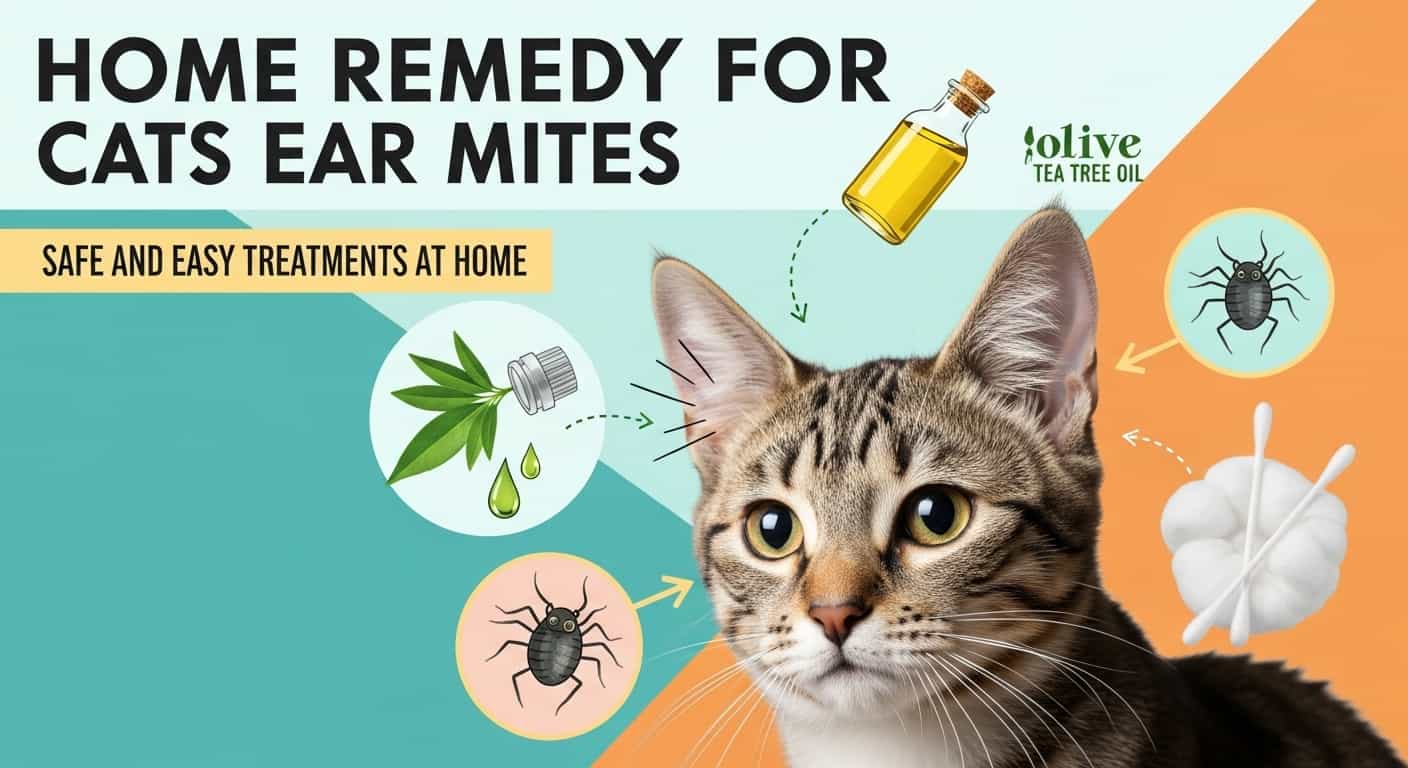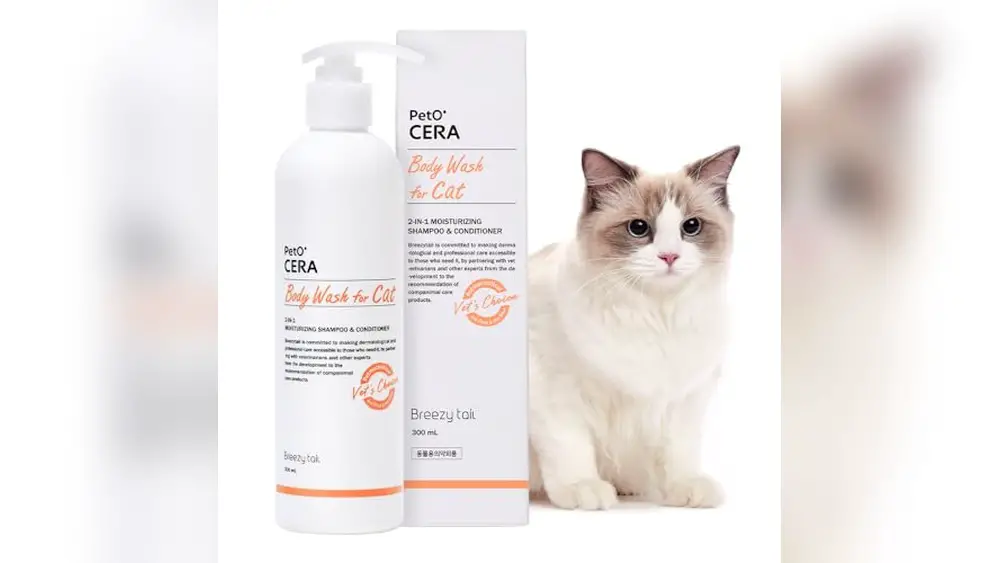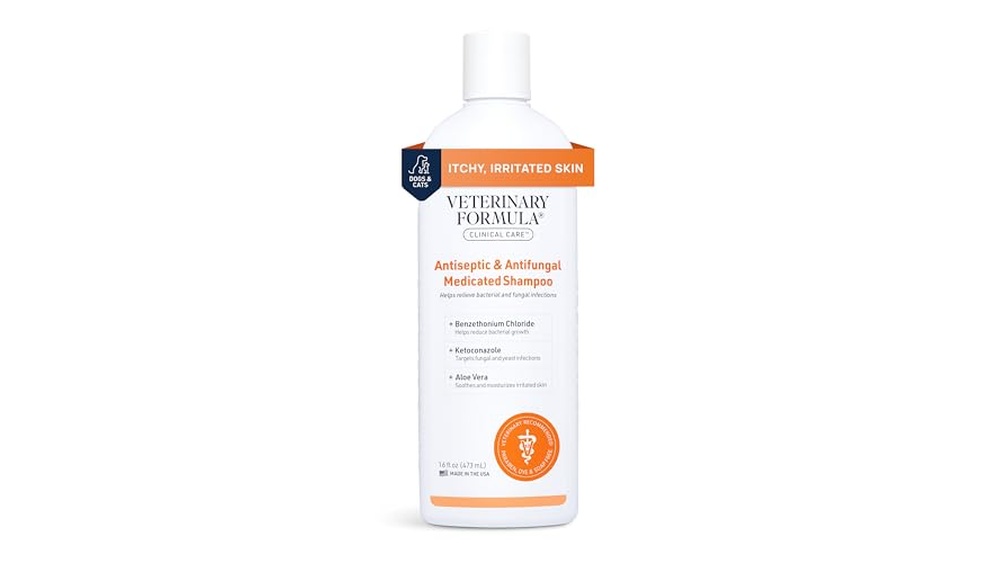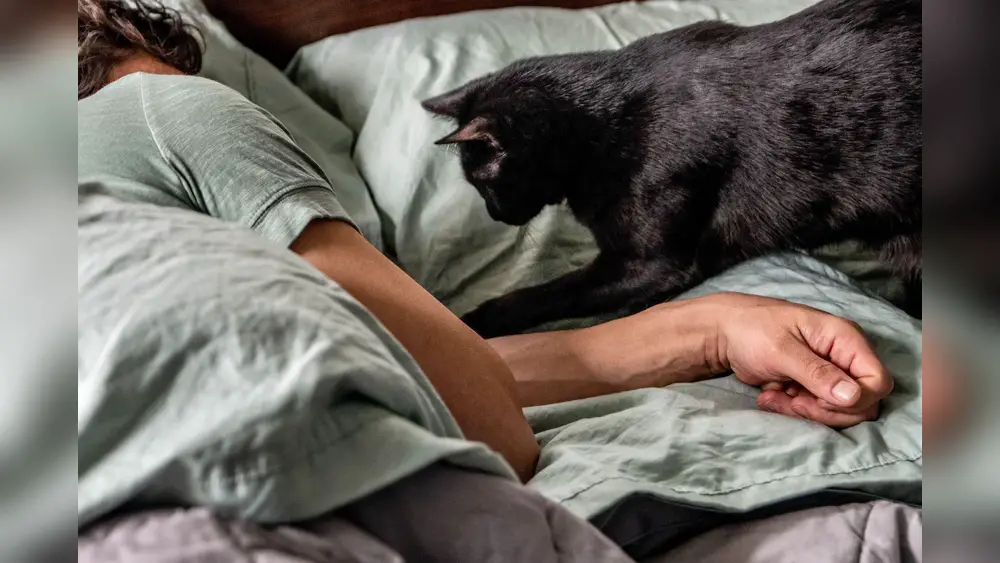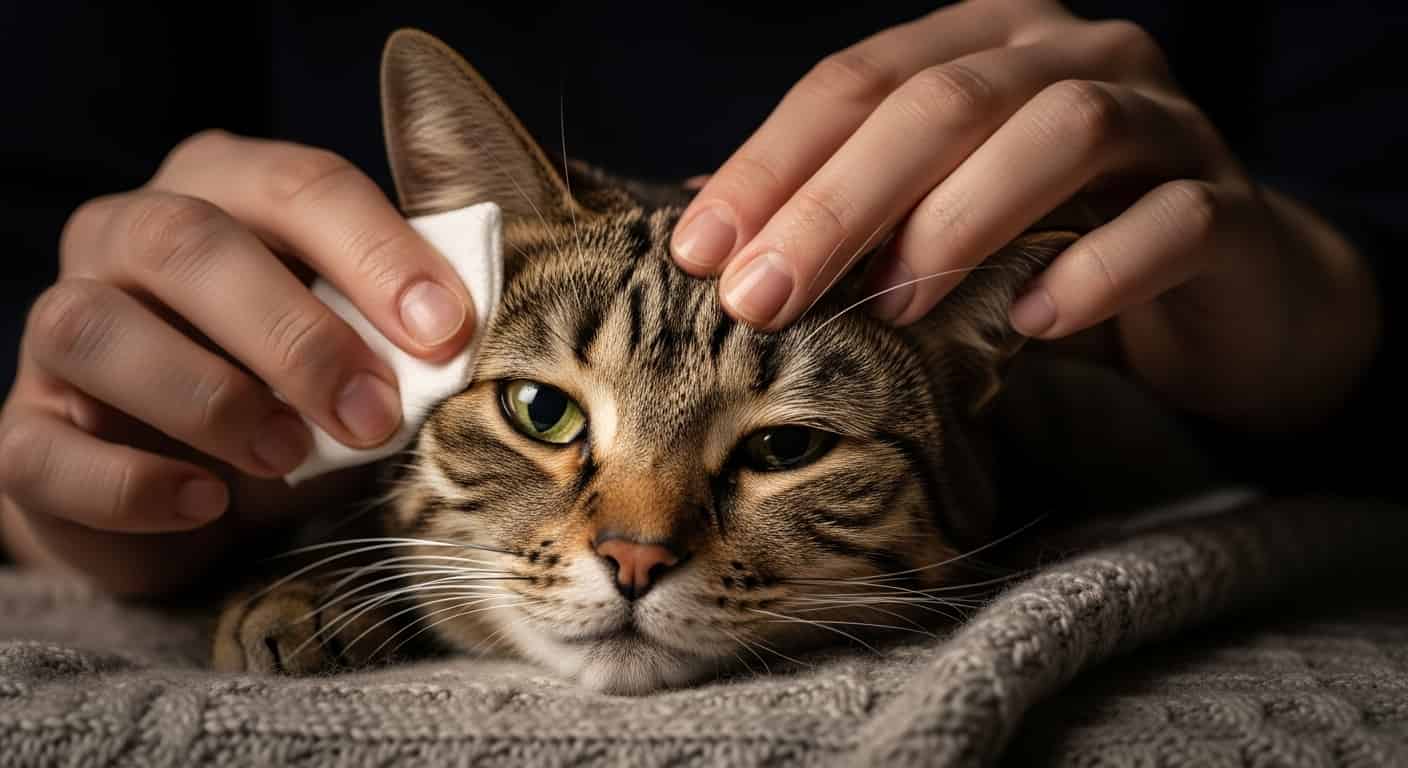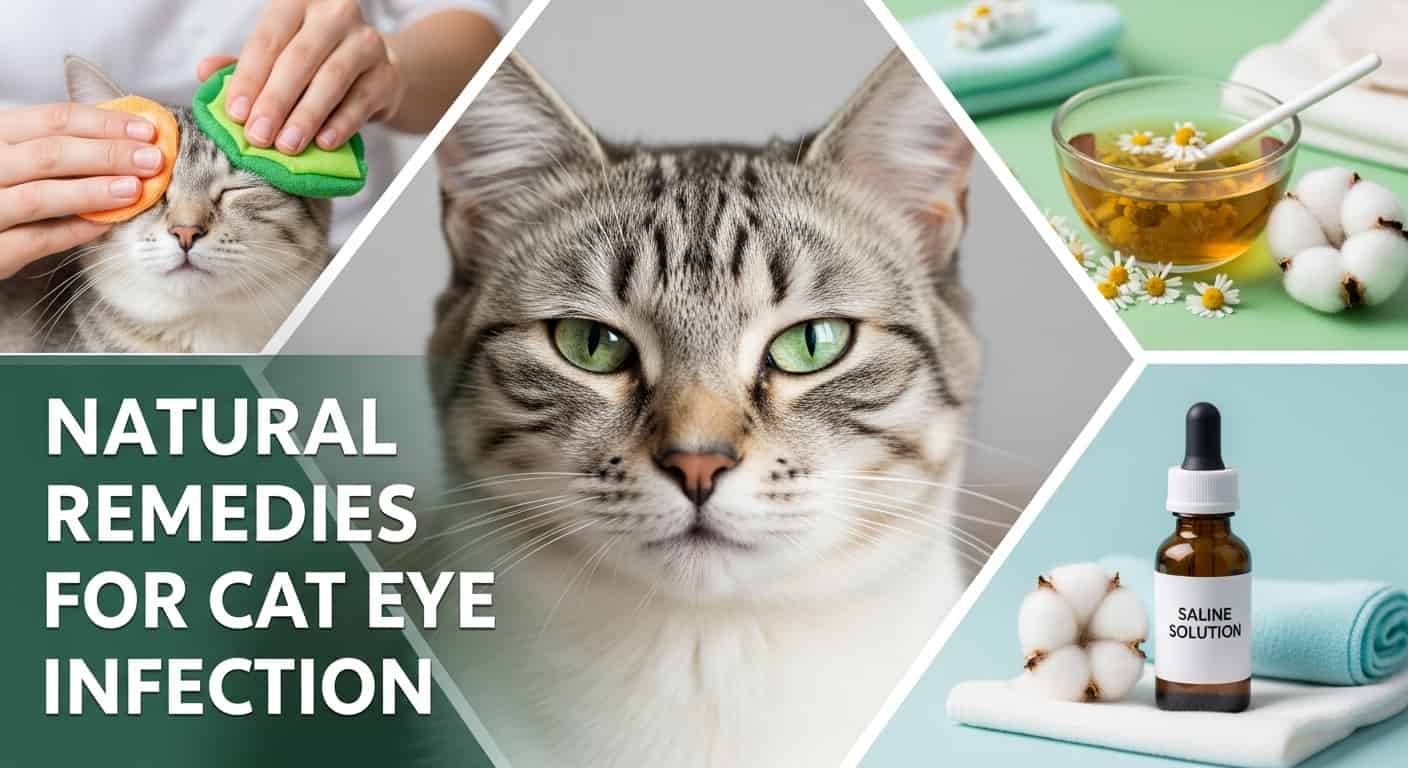Are you worried about your cat scratching its ears constantly? Ear mites could be the culprit, causing discomfort and irritation for your furry friend.
Table of Contents
ToggleThe good news is, you don’t always need expensive vet visits or harsh chemicals to help. You’ll discover simple and effective home remedies that can bring quick relief to your cat’s itchy ears. Keep reading to learn how you can protect your cat’s health with easy, natural solutions you can try right now.
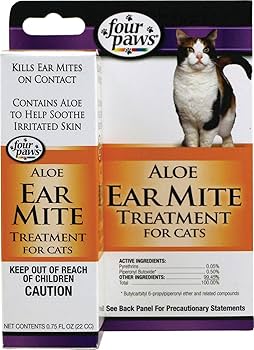
Credit: www.amazon.com
Symptoms Of Ear Mites In Cats
Ear mites are tiny parasites that live inside a cat’s ear canal. They cause irritation and discomfort. Knowing the symptoms helps catch the problem early. Early treatment can prevent serious ear infections and pain for your cat.
Common Signs To Watch For
One common sign is frequent scratching of the ears. Cats may also shake their heads often. You might notice dark, crumbly debris inside the ear. This debris looks like coffee grounds. A strong, unpleasant odor can also be present.
Behavioral Changes
Cats with ear mites may seem restless or irritable. They might hide more than usual. Some cats stop playing or lose interest in activities. You may see your cat rubbing its ears against furniture or the floor. These changes show discomfort and stress.
Physical Indicators
Look for redness and swelling inside the ear. The ear canal may appear inflamed. Your cat’s ears might feel warm to the touch. In severe cases, sores or scabs can form. These signs show the infection is worsening and needs care.
Causes And Risks
Ear mites are tiny parasites that live inside a cat’s ears. They cause itching, discomfort, and sometimes infection. Understanding the causes and risks helps protect your cat and keep their ears healthy. Early care stops serious problems.
How Cats Get Ear Mites
Cats catch ear mites through close contact with other animals. These mites move easily from one pet to another. Outdoor cats have higher chances of catching mites. Shared bedding or grooming also spreads the mites fast.
Here's a related post that you might find useful. Cat Peeing Blood Outside Litter Box: Urgent Causes & Solutions
Potential Complications
Untreated ear mites cause strong itching and pain. Cats scratch their ears and can hurt themselves. Ear infections may develop, causing swelling and discharge. Long-term damage to the ear canal is possible. Hearing loss can happen in severe cases.
Contagion Among Pets
Ear mites spread quickly among cats and dogs. A single infected pet can infect the whole household. Treat all pets at the same time to stop reinfestation. Clean bedding and living areas to remove mites. Regular checks help catch mites early.
Natural Remedies For Ear Mites
Ear mites cause itching and discomfort in cats. Natural remedies can help ease these symptoms safely at home. These treatments use simple ingredients found in many kitchens. They help clean the ears and reduce mite infestations gently.
Olive Oil Treatment
Olive oil suffocates and kills ear mites effectively. Warm the oil slightly before use. Apply a few drops into your cat’s ear. Massage the base of the ear gently to spread the oil. Wipe away excess oil and debris with a soft cloth. Repeat daily for best results.
Apple Cider Vinegar Solution
Apple cider vinegar creates an acidic environment that mites dislike. Mix equal parts of apple cider vinegar and water. Use a dropper to put the solution in your cat’s ear. Avoid open wounds or sores. Clean the ear gently with a cotton ball. Use this treatment two to three times a week.
Tea Tree Oil Precautions
Tea tree oil has strong anti-parasitic properties but needs caution. Never apply pure tea tree oil directly to your cat. Always dilute it heavily with a carrier oil like coconut or olive oil. Test a small amount first to check for reactions. Consult a vet before using tea tree oil on cats.
Aloe Vera Benefits
Aloe vera soothes irritated skin inside the ear. It reduces redness and inflammation caused by mites. Use pure aloe vera gel, not products with added chemicals. Apply a small amount inside the ear carefully. Aloe vera supports healing and comfort during treatment.

Credit: www.holistapet.com
Here's a related post that you might find useful. Cat Keeps Waking Me Up at Night: Proven Tips to Stop It Fast
Application Tips And Safety
Applying home remedies for your cat’s ear mites requires care and attention. Safety is key to avoid harming your pet. Proper application helps the treatment work better and keeps your cat comfortable. Follow these tips to prepare, apply, and repeat the treatment safely.
Preparing The Treatment
Start by washing your hands well. Use clean tools like cotton balls or swabs. Mix any natural ingredients as the recipe says. Warm the solution slightly for comfort. Avoid using anything too hot or cold. Have a quiet space ready to keep your cat calm during the process.
Administering Remedies Safely
Gently hold your cat’s head to prevent sudden moves. Avoid pushing anything deep into the ear canal. Apply the remedy only to the visible parts of the ear. Use a soft touch to avoid pain. Watch your cat’s reaction closely. Stop if your cat shows signs of distress or pain.
Frequency And Duration
Apply the remedy as the recipe or vet suggests. Usually, treatments happen once or twice a day. Continue for at least one week or until the mites disappear. Do not stop early, even if symptoms improve. Keep track of each application to avoid missing doses.
Preventing Ear Mite Infestations
Preventing ear mite infestations in cats is key to keeping them healthy and comfortable. These tiny parasites cause itching and discomfort. Stopping them early helps avoid serious ear infections. Simple habits protect your cat from these pests.
Regular Ear Cleaning
Clean your cat’s ears gently once a week. Use a vet-approved ear cleaner and soft cotton balls. Avoid cotton swabs as they can harm the ear canal. Look for dirt, wax buildup, or signs of mites. Early cleaning removes eggs and mites before they multiply.
Environmental Hygiene
Keep your cat’s living space clean. Wash bedding and toys often in hot water. Vacuum floors and furniture to remove dust and mite eggs. Clean litter boxes daily to reduce germs. A clean home limits mite spread and keeps your cat safe.
Routine Vet Checkups
Visit the vet every six months for a health check. The vet inspects your cat’s ears for mites and infections. Early detection helps treat problems quickly. Regular exams ensure your cat stays mite-free and healthy.
When To Seek Veterinary Help
Home remedies can help treat cats’ ear mites, but not all cases improve quickly. Some signs mean it is time to seek veterinary help. Early action can prevent pain and serious problems for your cat. Knowing when to get a vet’s advice keeps your pet safe and healthy.
Signs Treatment Isn’t Working
Your cat still scratches ears a lot after a few days. Ear discharge or bad smell remains the same or gets worse. Redness and swelling do not go down. Your cat shows signs of pain or discomfort. These signs mean home treatments may not be enough.
Complications To Watch For
Ear mites can cause infections if untreated. Watch for thick crusts or scabs inside the ear. Your cat may tilt its head or shake it often. Loss of balance or walking strangely can happen. These are signs of serious ear problems needing a vet’s care.
Professional Treatment Options
Veterinarians can provide strong medications not available at home. They may clean your cat’s ears safely and fully. Some treatments kill mites and heal infections fast. Your vet can check for other ear diseases or damage. Follow their advice for best recovery results.
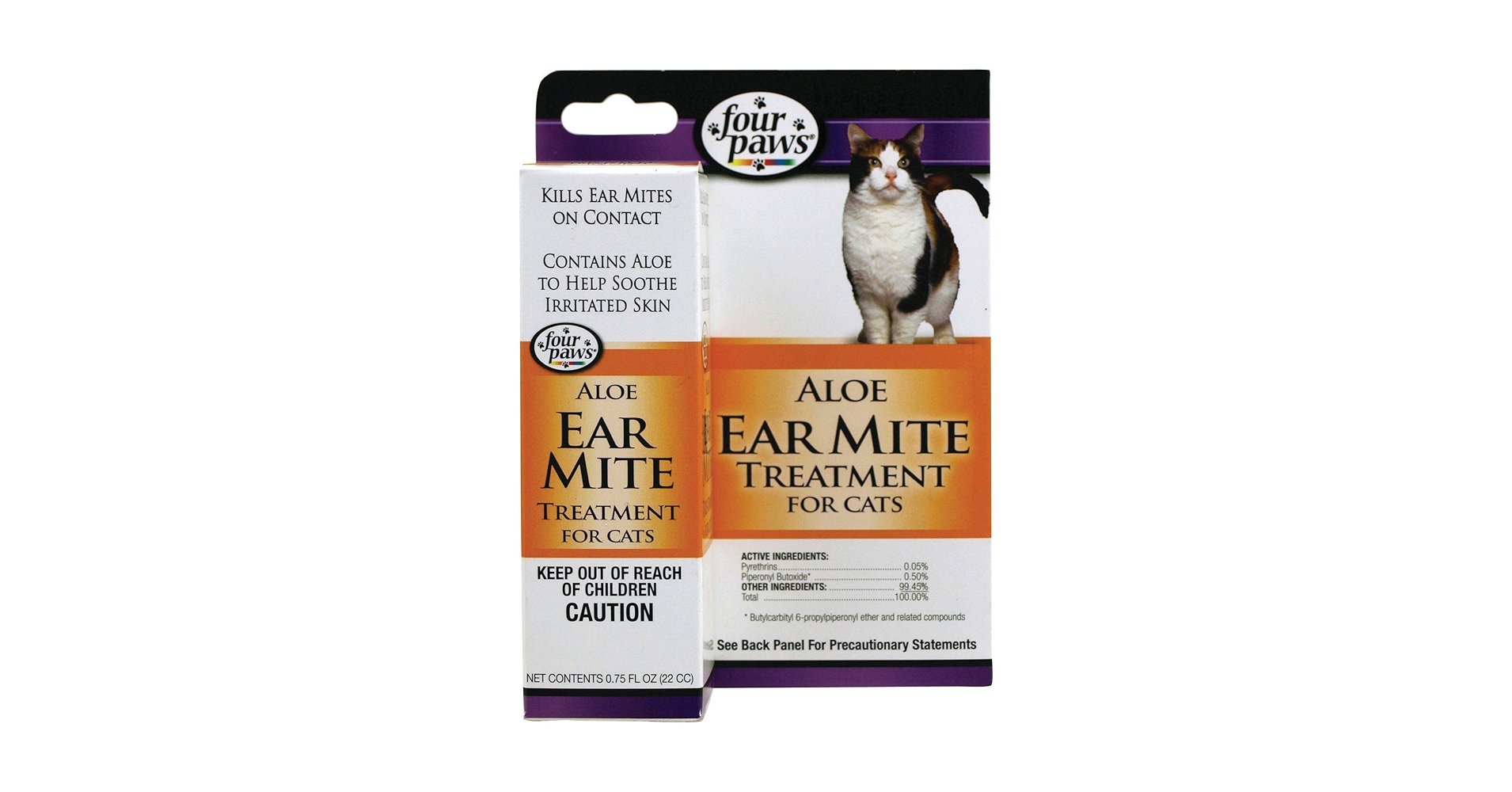
Credit: www.amazon.com
Frequently Asked Questions
What Are Common Symptoms Of Ear Mites In Cats?
Ear mites cause itching, redness, dark discharge, and head shaking. Cats may scratch ears frequently and show discomfort. Early detection helps in effective treatment and prevents ear infections.
How Can I Treat My Cat’s Ear Mites At Home?
Use natural remedies like olive oil or coconut oil to suffocate mites. Clean ears gently with a warm cloth. Consult a vet if symptoms persist or worsen.
Are Ear Mites Contagious Between Cats And Humans?
Ear mites easily spread among cats through close contact. They rarely infect humans but can cause mild irritation. Keep infected cats separated and maintain hygiene.
How Long Does Home Treatment For Ear Mites Take?
Home remedies usually take one to two weeks to show results. Consistent cleaning and treatment are crucial. Visit a vet if no improvement occurs after two weeks.
Conclusion
Treating your cat’s ear mites at home can be safe and effective. Simple remedies often help relieve itching and discomfort quickly. Always watch your cat closely during treatment for any signs of trouble. Clean the ears gently and repeat treatments as needed for best results.
Consult a vet if symptoms worsen or last too long. Healthy ears mean a happier, more comfortable cat. Keep your pet’s ears clean and check regularly to prevent mites. Small steps make a big difference in your cat’s ear health.

